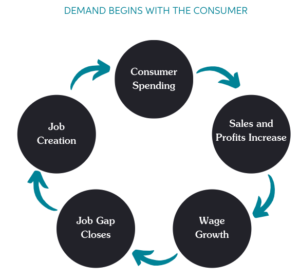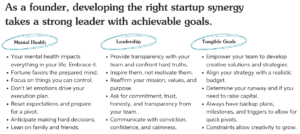There are many factors at play right now creating uncertainty for investors and startups. It’s easy to become frustrated or jaded, but there are many ways to embrace the challenges and power through it. As a reminder, some of the largest and most influential companies sprouted up during recessions and tumultuous times. Don’t let skepticism get the best of you.
The recent PitchBook-NVCA Venture Monitor provides an interesting snapshot of the most recent happenings in the startup ecosystem. One main takeaway to keep in mind is that 2021 was an exceptional year for investors and startups and an outlier compared to previous years.
“2022 is already the second-highest year on record for US VC fundraising and the second consecutive year this total has exceeded $100 billion.”
Looking back at the five preceding years, Q2 2022 is up across nearly all sectors. Deal activity is strong, too. It is clear that the investor ecosystem has also grown, now amassing a record $290 billion. Obviously, that doesn’t negate the challenging market for companies looking for an IPO, buyout, or acquisition. But there is a lot of “dry powder” already committed by investors that is not allocated yet to companies.
Improve Efficiency
A course correction can be interpreted as an opportunity to improve the ways in which you do business. Tighten up your goals, and challenge your team to think outside of the box to implement creative solutions. Innovation doesn’t just stop when things get hard. Industries will continue to be revolutionized by inventive founders during this time.
“What emerges from the chaos will be a leaner and more efficient industry,” says The Economist.
We agree with Venture Monitor‘s take in suggesting “value creation and capital efficiency.” You want to extend your runway (30+ months), review your operating costs, and remain an enticing company to investors. Scrutinize anticipated new hires and control your marketing spend. If you are lucky to have an opportunity to receive additional funding, consider taking it. Fallback capital might provide a level of ease for you and your employees.
Re-align Goals
Startups have enjoyed valuation multiples over the years with a bull market favoring opportunity over fundamentals. Great companies will still get funded, but higher levels of scrutiny will be applied. The due diligence process will focus more on fundamentals, growth trajectory, and concrete sales numbers.
We can’t ignore the obvious fundraising challenges ahead of startups with term sheets being pulled and round sizes shrinking. You have to be aware of the fact that your last round’s valuation may not stick. Although not ideal, be open-minded to a lower valuation.
Another thing to consider is if you can strengthen the bond you have with your current customers to create additional revenue streams. Are there opportunities to upsell them by adding low-cost services, features, or new offerings? Find creative solutions to modifying your business model.

Transparent Communications
Working at a startup is already a stressful occupation to choose. No employee wants to feel like they’re on a sinking ship. As a founder, get ahead of the conversation. Display thoughtful, concise leadership and a reimagined vision for the future. Clearly vocalize what is going on, what your company needs to do, and any additional risk factors you may face as an organization. Be honest about the challenges ahead of you without causing apathy, panic, or abandonment.

Another important piece in your communications to employees is to reestablish your company’s mission, vision, and purpose. Double down on your business objectives while initiating a rallying cry that empowers unity around the future of your company. The more your employees are kept in the loop, the more proactive they’ll be in helping you succeed. Remind them about why they joined your company and the impact you could collectively have on the industry. And always welcome creativity.
Do not take this downturn as a time to stop communications with your investors or customers either. Continue your reporting, nurturing your venture contacts, and continuing momentum. I promise you, with more transparency, you’ll be amazed at what will get accomplished and who will step up to the plate.
Health Check
The old mantra that you need to work around the clock on your startup is an unhealthy characteristic of a successful entrepreneur. You will be more productive with a structure to the madness. Your time and energy aren’t finite. Don’t leave yourself on empty.
Entrepreneurs are at a higher risk for mental health issues, according to a study by Michael Freeman. It is inherently stressful being at the helm of a startup, but without a proper work/life balance, it can get the best of you. Learn ways to distance yourself, decompress, tune out, and recharge.
It is easy to lose sleep over what is happening at your company. But lack of sleep can increase anxiety, fatigue, and depression. These are all outcomes that impair your judgement and decision making. A healthy balance of sleep, eating habits, routine, and exercise will go a far way in reducing burnout.
Your own mental health shouldn’t be your only concern, though. Find ways to improve morale for your employees by introducing team-building exercises, lunch gatherings, wellness programs, no-meeting mornings, early release days, or “off the clock” policies that limit expectations after work hours.
Innovative solutions emerge under constraint, especially when creative minds unite. Mentally adjust, align the team, refresh your business plan, communicate, execute, monitor, and change.
So as a founder, how are you navigating the economic uncertainty at your startup?